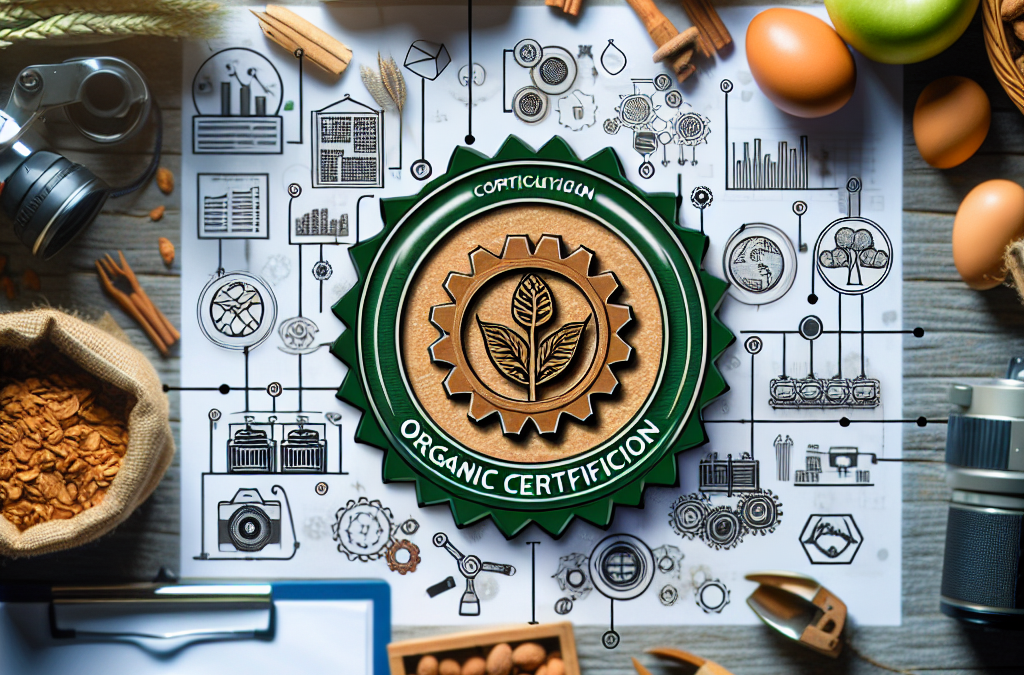Understanding the Importance of Organic Certification
Why Go Organic?
When I first dived into the world of organic farming, I always wondered, “Why should I even bother with organic certification?” Trust me, it’s not just for the fancy label! Organic certification helps you stand out in a crowded market. Consumers are becoming more health-conscious and environmentally aware, and they’re searching for products that align with their values. Being certified organic gives your produce that extra edge, showing customers you care about quality and sustainability.
Moreover, organic certification ensures that what you’re offering is genuinely organic. It’s like having a badge of honor that tells everyone you’re committed to transparent farming practices. I’ve found that once customers understand the integrity behind organic products, they’re more likely to choose them over conventional options.
Lastly, the organic sector is growing rapidly. Adopting organic practices and obtaining certification puts you in a thriving market where you can not only earn a profit but also contribute to a healthier planet. It feels good to be part of something bigger, doesn’t it?
The Steps to Achieving Organic Certification
Starting with the Basics
Firstly, understanding what organic certification entails is crucial. It’s not just a checklist! The process begins with comprehending the organic standards set out by certifying bodies. I had to do my homework, reading up on the National Organic Program (NOP) guidelines, which helped me grasp what defines organic farming.
Next, you need to consider your soil and the substances you use. This means transitioning from conventional methods to organic practices, which can be a bit daunting. Like I did, be prepared to analyze your soil, as it forms the foundation of healthy crops. I remember testing my soil and making necessary amendments to meet organic standards.
Last but not least, keep records! Documentation is key in the certification process. I started logging everything—what I planted, where I sourced my seeds, even the materials I used to fertilize. This might feel tedious, but believe me, it pays off when you’re ready for that certification inspection!
Preparing for the Inspection
Getting Ready for the Big Day
The day of the inspection can be nerve-wracking, but with the right preparation, you’ll be just fine. Spend some time revising your records and making sure everything aligns with organic standards. This was a revelation for me! I discovered that by preparing early, I could alleviate a lot of last-minute stress.
Moreover, it’s essential to communicate openly with your inspector. I remember feeling anxious about what they would think of my farm, but engaging in a friendly conversation about my practices made a world of difference. Your inspector is there to help you succeed, so treat them as a partner in the process.
Lastly, after the inspection, take the feedback seriously. My inspector provided valuable insights, and I made changes based on their recommendations. The path to certification is often iterative, so be open-minded and flexible!
Maintaining Your Certification
The Ongoing Commitment
So, you’ve done it—you’re officially certified! However, this isn’t where the journey ends. Maintaining organic certification is an ongoing commitment that requires diligence. I learned pretty quickly that I needed to stay on top of record-keeping and follow through with my organic practices year-round.
Get Certified Organic Whole Food Nutrition – Nutrient Dense Supplement
Additionally, stay informed about any regulatory changes. The organic market is ever-evolving, and adjustments in guidelines can happen. I found joining local farming associations helpful; they provide updates and resources that keep you in the loop.
Finally, don’t forget to renew your certification annually. This is often a surprise to newcomers! Just having that certification doesn’t mean you can kick back and relax. I make it a habit to review my processes regularly, ensuring I’m upholding those high organic farming standards.
Embracing the Community
Building Relationships and Networks
One of the most rewarding aspects of going organic has been the amazing community I’ve connected with along the way. Joining local networks and organizations has opened doors to relationships with fellow farmers who share the same ideals and challenges. It’s comforting to have that support, and we often share tips and resources!
Engaging with consumers is just as crucial. Hosting open farm days and participating in farmers’ markets have allowed me to directly connect with customers and educate them about organic farming. It’s satisfying to see how excited they are to purchase clean, pesticide-free produce!
Lastly, don’t underestimate social media’s power in building your organic brand. Sharing your journey, practices, and the realities of organic farming can help bridge the gap between farmers and consumers. Trust me, people love to see your story unfold!
Frequently Asked Questions
What is organic certification?
Organic certification verifies that a farm or processing facility adheres to specific organic standards set by certifying bodies like the USDA. It covers important aspects like soil health, pest control, and farm management practices.
How long does the organic certification process take?
The certification process may take several months, depending on the complexity of your operation. Factors include preparation time, gathering documentation, and scheduling the inspection. It’s best to start early!
Can I sell organic products without certification?
Nope! In most regions, you cannot label products as organic without proper certification. Doing so can lead to legal repercussions and damage to your reputation.
What are the main costs associated with certification?
Costs can vary widely depending on your operation size and location. Common expenses include application fees, inspection costs, and any necessary improvements to meet organic standards.
How do I maintain my organic certification?
Maintaining your certification involves keeping meticulous records, adhering to organic practices, renewing your certification annually, and being proactive about any updates or changes in organic guidelines.





